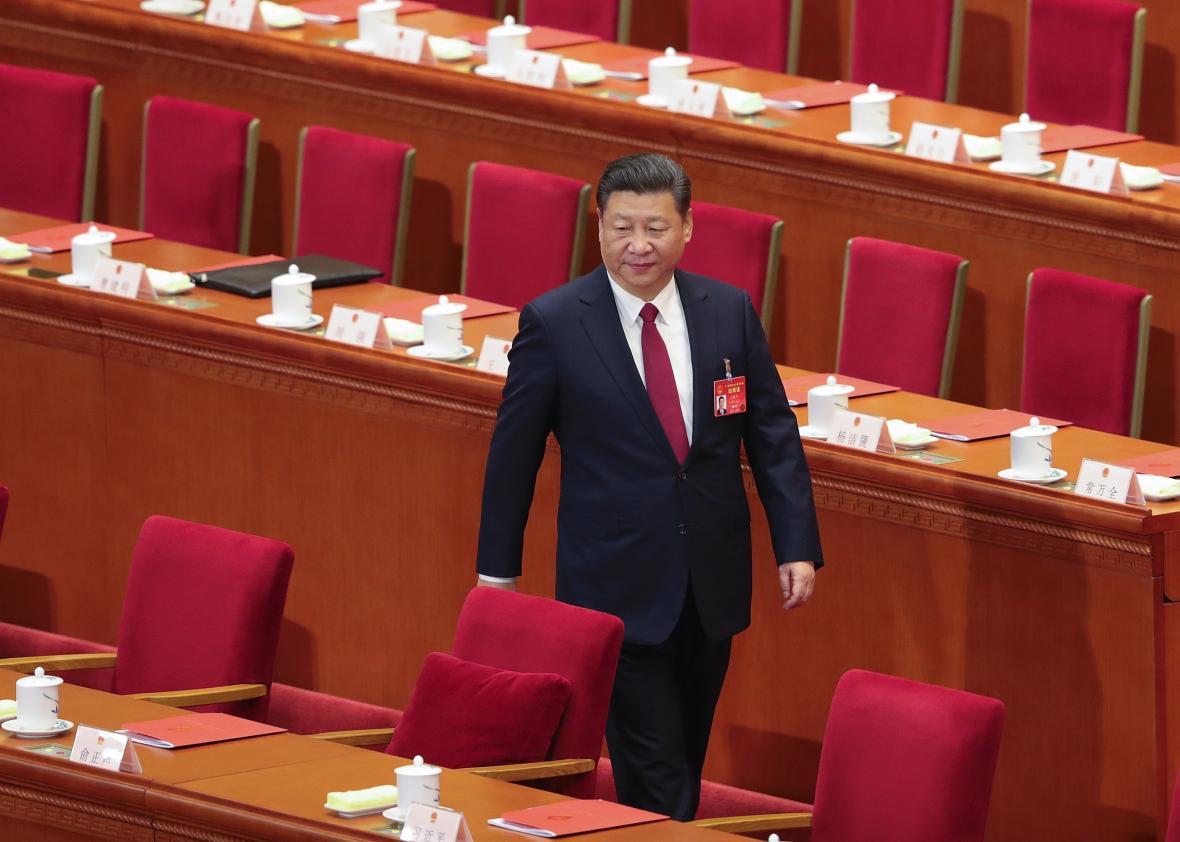The two most powerful men in the world, Donald Trump and Xi Jinping, are getting together this week for two days of talks at Trump’s Mar-a-Lago estate in Florida.
The U.S. president has not exactly been setting expectations high.
Beijing may be used to China-bashing from U.S. politicians seeking election, but Trump took it to a new level, and since taking office he has continued the barrage of tweets decrying China’s economic policies and failure to police North Korea’s nuclear policy.
But from China’s point of view, the Trump administration hasn’t gone too badly so far. Trump’s bark has been quite a bit worse than his bite on trade. He’s shown few signs of following through on pledges to slap a 45 percent tariff on imports from China or label the currency a currency manipulator. (Part of the problem with the latter pledge is that China is no longer manipulating its currency, according to the U.S. Treasury.)
It’s been much the same on geopolitical issues. During the transition, Trump broke protocol by taking a phone call from Taiwan’s president and suggesting he was opening to reversing the “one China” policy recognizing the island as part of China. But he backed down quickly after his first phone call with Xi. He also pulled the U.S. out of the Trans-Pacific Partnership, a proposed regional trade deal opposed by China.
Trump’s moves to gut Obama’s emissions regulations have helped thrust smoggy Beijing in the unlikely role of global climate leader, and as Isaac Stone Fish writes in Slate today, the administration’s complete lack of interest in talking about human rights is a welcome change for Chinese leaders. Trump has even named Xi’s old friend Iowa Gov. Terry Branstad as ambassador to China.
Xi also comes into the Mar-a-Lago summit in a much stronger domestic position than Trump. Trump has seen his signature initiatives stymied by Congress or the courts, has historically low approval ratings, and is facing a number of ongoing investigations. Xi—who admittedly has the advantage of being an actual dictator rather than a wannabe one—is stronger than ever after a corruption crackdown that conveniently purged many of his rivals. Last fall, the Communist Party elevated him to the status of “core leader,” a symbolic honorific indicating his position as a generational figure. So, Trump probably needs a win out of this more than Xi does.
The two big topics of the discussions are likely going to be trade and North Korea.
On the first, experts are predicting that Xi will come bearing enticements in the form of promises to invest in U.S. manufacturing. In this, he may be taking a cue from archrival Shinzo Abe of Japan, who reportedly asked Japanese companies to come up with “tweetable” investment plans he could deliver to Trump during his own Mar-a-Lago visit in February. Given Trump’s transactional style, it’s not hard to imagine him touting a pledge or two to build factories in the U.S. as evidence that his tough talk on China is getting results.
On North Korea, the stakes were underlined this week by a new ballistic missile test by the Kim Jong Un’s government, fired into the East China Sea. The timing was probably deliberate. Trump has said he holds China responsible for deterring North Korea’s program and made some comments this week that many interpreted as a warning that the U.S. would use military force if the tests continued. Here, too, China may promise to build on its existing sanctions, without fundamentally changing its policies or compromising on its core interest: keeping North Korea as a buffer against U.S. military power.
The Chinese government may be hoping that the casual warm-weather setting will allow for a repeat of Xi’s first meeting as president with Barack Obama in 2013, when the two leaders got to hang out and bond in their shirtsleeves at Sunnylands Ranch in California, beginning a personal relationship that reportedly stayed pretty friendly, even during some rocky times between the two countries.
But there are some awkward things about the location as well. The New York Times notes today that Guo Wengui, a billionaire and outspoken critic of the Chinese government, is a member at Mar-a-Lago. We can assume he won’t be at the presidents’ table.
Xi also won’t be following in Abe’s footsteps by playing golf with Trump. As part of an ongoing crackdown on the decadent lifestyles of corrupt officials, China has been shutting down dozens of golf courses throughout the country. So that would be awkward.
On a personal level, the two leaders might seem like an odd fit, but they may find some common ground. The Chinese president is also a bit of a populist, in an idiosyncratic Chinese way, cultivating a friendly approachable “Uncle Xi” image in contrast to his more aloof predecessors.
Keep an eye on the families: Chinese diplomats have reportedly been preparing for the meeting by reaching out to Trump’s son-in-law Jared Kushner. (Add China to Mideast peace, Iraq, criminal justice reform, and reinventing government on the list of issues that Kushner is apparently totally on top of.) Trump’s daughter Ivanka, or Yi-Wan-Ka if you prefer, has also become an unlikely media sensation in China.
Xi will be accompanied by his wife, Peng Liyuang, who is a celebrity in her own right: She had a career as a singer and TV star before she was first lady. She’s played a prominent role in other diplomatic visits and Chinese censors seemed to think she was getting a little too much attention from Vladimir Putin at a summit in 2014. I’m sure Trump will be a perfect gentleman.
